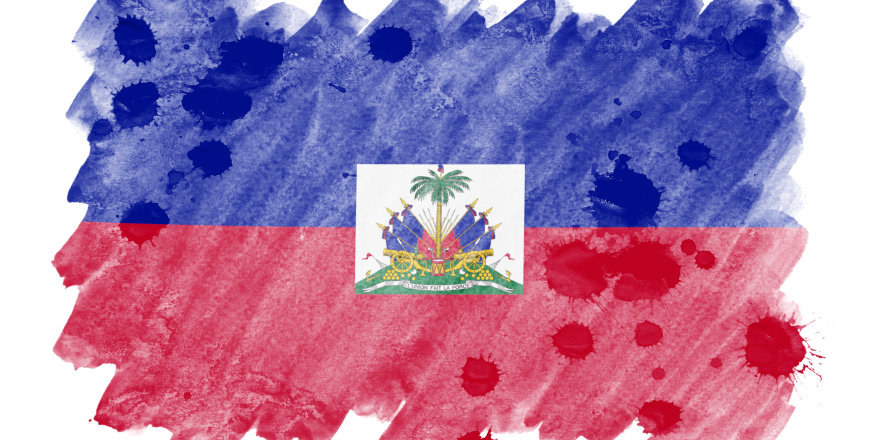URegina Receives $2M Donation to Support Students Affected by 2010 Earthquake in Haiti
This donation marks the largest one-time gift in the university's history, and it's going to a great cause.

The University of Regina will receive its largest-ever one-time donation: a $2.08 million scholarship contribution from alumnus Dr. Nevan Krogan (BSc '97, MSc '99) and his partners.
The donation will go towards the Children of Haiti Project Scholarship, through which, starting in 2023, 10 graduates from the Children of Haiti Project (COHP) will get the opportunity to pursue an undergraduate degree in the discipline of their choice at the U of R, with their tuition, housing, immigration costs and living expenses covered.
Helping underprivileged students get a great education
"I just can't think of a better place for a group of 10 very underprivileged but very talented students to go to get exposure in a way that is extremely supportive," Dr. Krogan said. I feel like trying to do something for Regina and something for the University that I came from and gave me all my breaks, so I'm trying to give back there as well and I thought this was a potential win-win."
The road to providing these students with the gift of a lifetime started after Dr. Krogan finished his education and became the director of the Quantitative Biosciences Institute at the University of California San Francisco in 2015. The work of Dr. Krogan and his colleagues involved building relationships with scientists from different institutions to study and advance the biological mechanisms necessary to cure infectious diseases.
This work took Dr. Krogan around the world, including to Haiti, the birthplace of the Institute's Chief Operating Officer and one of the co-founders of the COHP, Jacqueline Fabius.
2010 earthquake in Haiti
The COHP was started in the aftermath of the magnitude 7 earthquake that hit just outside the Haitian capital of Port-au-Prince in January, 2010, killing an estimated 250,000 people and displacing more than two million others. The project was created to provide education, healthcare, and nutrition to deprived children with a mission to create Haiti's future leaders. Its programming efforts are potentially being emulated in other areas as well.
The students learn a normal curriculum in English and French on top of math, arts and sciences but they still face many social and economic challenges. The students come from destitute neighbourhoods, so the program ensures they are housed, fed, taken care of medically and are taught to rise above the negativity that surrounds them every day in their home neighbourhoods.
Despite the enormous environmental, economic and political challenges, the students have flourished, with the top students ranking in the 91st percentile in international evaluations.
Supporting families back home
The students may have a hunger to achieve academic success and their career ambitions, but they are doing so with the knowledge that their families and even communities are depending on them.
"Their families are counting on them and they feel lucky and this is something they are not taking for granted, they are doing their best," Pierre added. "I would like them to be themselves and I want to give them a chance of choosing what they want to be or what they want to do. Whatever role they choose to take, I would like them to become model citizens."
"I started to learn the backstory of these kids and they were essentially handpicked out of one of the earthquake refugee camps of Port-au-Prince, and originally, their future was bleak," Dr. Krogan said. "At this point, they were getting an excellent education, but the question was, where are they going to go to college? I started thinking maybe we could do something with the U of R."
The decision to support these students for the last 10 years and now give them the opportunity to pursue their dreams was more than a relief for Fabius.
"Relief seems like a small word in comparison to what it represents for the life of these children and the chances they will have as adults," she said. "Just the ability to have not only a chance but choices — choices on how they want to lead their lives and ideally, on how they recontribute to Haiti to make it a better place."
For Dr. Krogan, the children and Haiti won't be the only beneficiaries.
"You're getting the best 10 students from this country — how many times do you get 10 of the best students from a whole country coming to your university? You'd take that every day," he said. "To me, that's fantastic and these kids are going to come in and do amazing things for Regina and Saskatchewan — anything they do will be a success."
Get more info on the University of Regina
